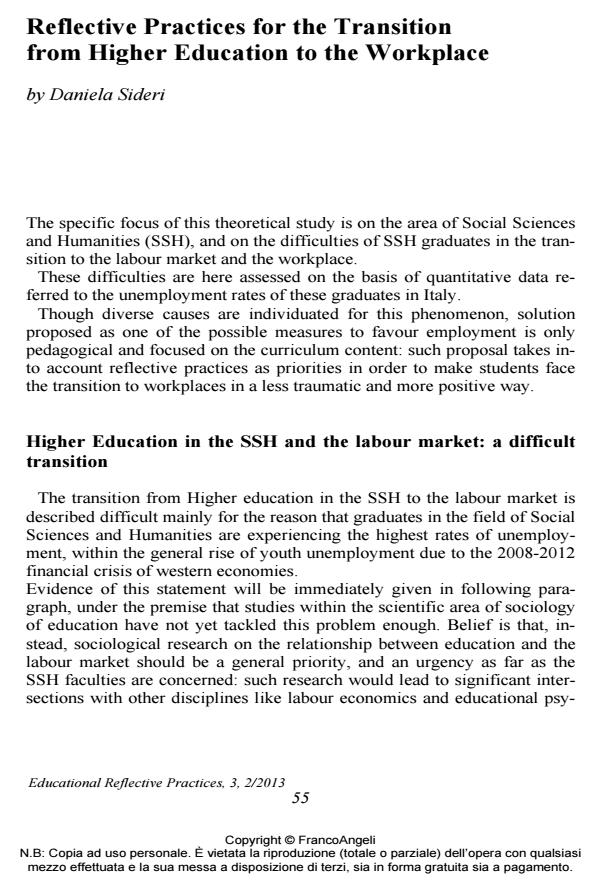Reflective Practices for the Transition from Higher Education to the Workplace
Titolo Rivista EDUCATIONAL REFLECTIVE PRACTICES
Autori/Curatori Daniela Sideri
Anno di pubblicazione 2014 Fascicolo 2013/2
Lingua Inglese Numero pagine 15 P. 55-69 Dimensione file 589 KB
DOI 10.3280/ERP2013-002004
Il DOI è il codice a barre della proprietà intellettuale: per saperne di più
clicca qui
Qui sotto puoi vedere in anteprima la prima pagina di questo articolo.
Se questo articolo ti interessa, lo puoi acquistare (e scaricare in formato pdf) seguendo le facili indicazioni per acquistare il download credit. Acquista Download Credits per scaricare questo Articolo in formato PDF

FrancoAngeli è membro della Publishers International Linking Association, Inc (PILA), associazione indipendente e non profit per facilitare (attraverso i servizi tecnologici implementati da CrossRef.org) l’accesso degli studiosi ai contenuti digitali nelle pubblicazioni professionali e scientifiche.
The specific focus of this theoretical study is on the area of Social Sciences and Humanities (SSH), and on the difficulties of SSH graduates in the transition to the labour market and the workplace. These difficulties are assessed on the basis of quantitative data referred to the unemployment rates of these graduates in Italy. Though diverse causes are individuated for this phenomenon, solution proposed as one of the possible measures to favour employment is only pedagogical: focused on the curriculum content, it takes into account reflective practices as priorities in order to make students’ transition to workplaces less traumatic and more effective.
Daniela Sideri, Reflective Practices for the Transition from Higher Education to the Workplace in "EDUCATIONAL REFLECTIVE PRACTICES" 2/2013, pp 55-69, DOI: 10.3280/ERP2013-002004